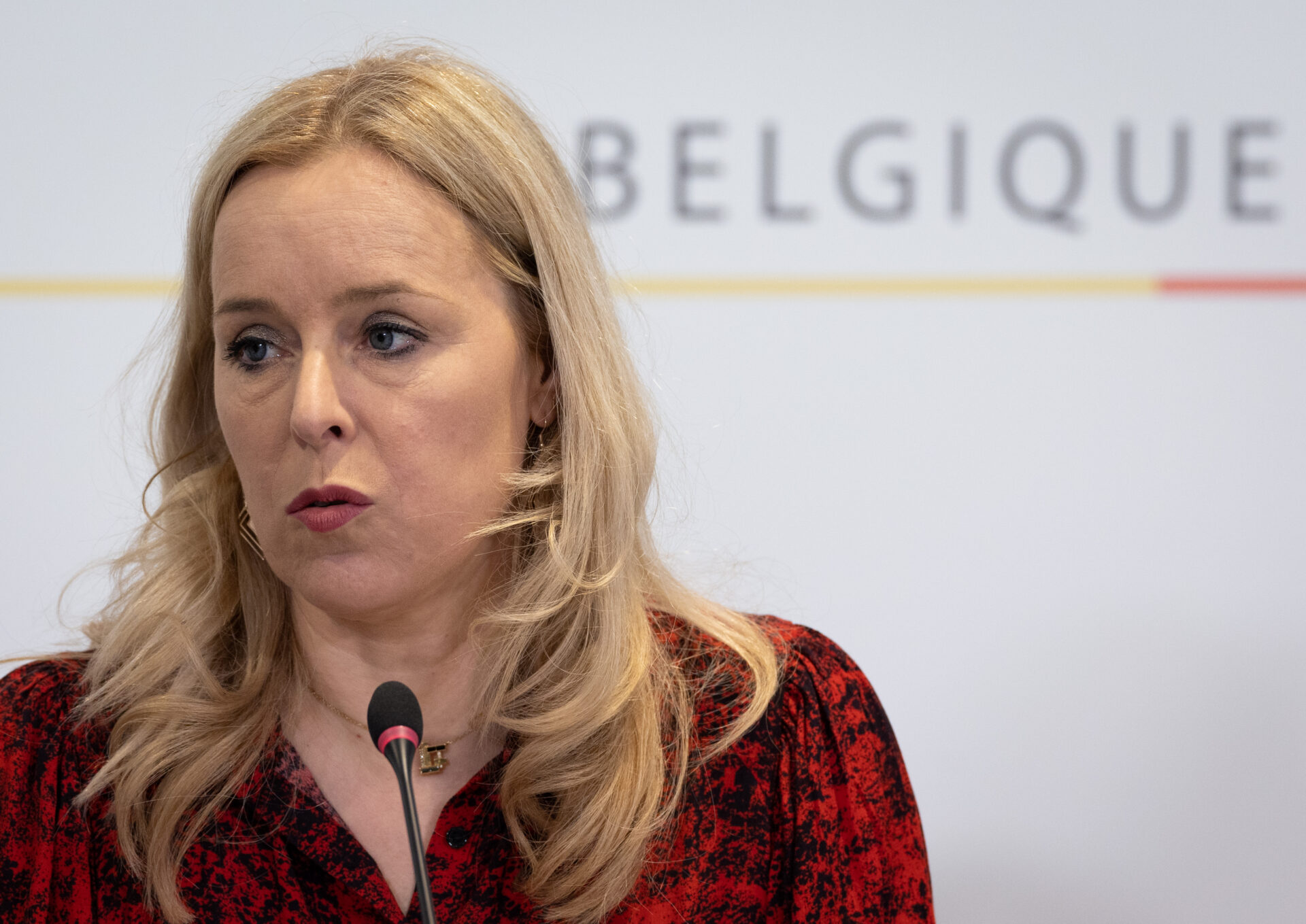The controversial proposal for the Child Sexual Abuse (CSA) regulation – also called 'chat control' – that was taken off the agenda at the last minute during the Belgian presidency of the Council of the EU before the summer, will be up for discussion again this week.
The conversation around the regulation has been complicated, as it pits the need to stop the spread of images of child abuse against the right to privacy. While the vote on the controversial proposal was postponed indefinitely in June, it is now back on the table.
"The proposal that is now on the table is the equivalent of abolishing the secrecy of correspondence, with the government checking every letter before it is sent," said Eva De Bleeker, the new leader of the Flemish liberal party Open VLD, in a press release.
She emphasised that the proposal opens the door to abuse, calling it "the wet dream" of authoritarian or dictatorial regimes that want to track down and prosecute minorities or nip any form of dissent in the bud. "This form of state control has no place in Europe."
Toned-down version
According to the current proposal, private messages from all citizens would be checked for images of child abuse. It would not concern regular texts or voice messages, but visuals (photos and videos) and URLs would be scanned before being sent.
Providers that use end-to-end encryption, such as WhatsApp but also privacy-focused apps such as Signal, will have to use so-called 'upload moderation': before a message is encrypted, the provider must check the content for images of child abuse. They will be compared to a database of known images of child abuse.
While users would have to give explicit consent first, refusing this would come at the cost of no longer being able to send photos or videos.
The proposal that was on the table before the summer also included using artificial intelligence (AI) to check for new images of child abuse. The latest version shows a slight and temporary relaxation on that front, however.

The new leader of the Open VLD party, Eva De Bleeker. Credit: Belga / Benoit Doppagne
According to Politico, a document dated 29 August states that although the detection of known images of child sexual abuse (CSAM) is still on the agenda, scanning for "new" material is not – removing the use of AI in assessing images.
The previous proposal's use of AI was a major concern among privacy experts, as an algorithm could easily misread what falls under child abuse. For example, parents sending each other photos of their child having a bath could be labelled as illegal footage.
The most recent text, however, states that service providers and a European centre (that has yet to be established) must contribute to the development of accurate and reliable technology to detect new forms of child sexual abuse material.
In practice, this means that the negotiations currently taking place concern a toned-down version of 'chat control', but with the aim of introducing the measures in the long term when the technology is more up-to-date.
They can keep gutting parts to get it passed (and it sure looks like they'll try), but the core is rotten and unfixable: #chatcontrol hinges on inspecting material, on your device, *before* it gets encrypted. It thus breaks all secure communication. Period. https://t.co/orzhGUwQcq
— Jeroen Baert (@jbaert) September 3, 2024
Toned-down version or not, De Bleeker stressed that this regulation would "effectively put an end to end-to-end encryption, which is an attack on the fundamental right to privacy."
While those in favour of the bill present 'chat control' as the weapon against child sexual abuse, De Bleeker stressed that it is not. "More than 250 scientists and experts agree on this. The proposal is 'well-intentioned', but it sets a dangerous precedent. The fight against child sexual abuse must be fought with great force, but this is absolutely not the way."
Additionally, there is a great chance that many citizens – such as parents sending a photo of their child to each other, for example – will be wrongly accused of sharing images of child abuse. "The sender will be considered a risk and possibly end up in a system where they absolutely do not belong."
Back on the table?
The European Commission previously put forward a proposal on 'chat control' in 2022, which would oblige technology companies to detect and report images of child abuse in private messages.
The initial proposal was rejected by the European Parliament last autumn, but Belgium then controversially proposed a reworked version in the final days of its EU presidency before the summer. A majority could not be found, and the vote was postponed indefinitely.
While Belgium was one of the countries leading the charge during its presidency, the country's position is currently unclear. Hungary, which currently holds the presidency, is aiming to get Member States on board by 10 October, Knack reports.

